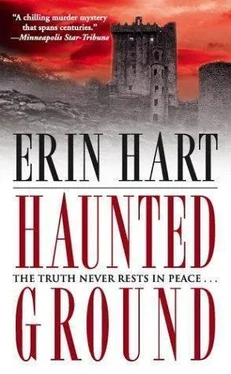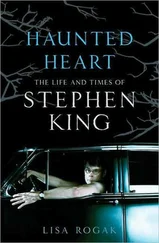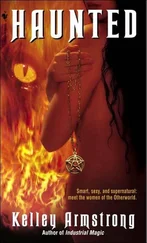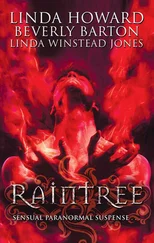“Yeah,” the boy said glumly, without looking up. Cormac guessed that he’d been called upon to corroborate his mother’s story more than once before in this manner.
“Why was it strange that Osborne was here?” Cormac asked.
“Because this is the last place we saw his missus and the little lad before they disappeared,” said Mrs. Pilkington. “Dreadful, isn’t it? They used always to be coming in here, you know, a very nice quiet lady she was—a proper Catholic, too, though you mightn’t think it to look at her, she was as dark as a black African, that one. And little Christopher. He’d always stop and say hello to me when he came into the village with his daddy. Such lovely manners, he had, for such a small little lad. Do you have any children yourself, Mr. Maguire?”
“I’m not married.”
“Well, sure, the want of a wedding doesn’t stop them,” she said. “There’s plenty around here proof enough of that. Ah, but you’re better off as you are, really, for all the heartache you’d suffer with them.” Cormac glanced over at Oliver Pilkington’s bowed head, and wondered what heartache he’d been responsible for thus far.
“What do people make of it—the disappearance?” Cormac asked.
“Depends on them you speak to. Now, I don’t hold with gossiping. I’ll tell you straight out. It’s a sin. There’s some round here and they’ve nothing better to do than sit and natter about other people’s misfortunes. For instance,” she said, suddenly lowering her voice, “there’s a few would be delighted to tell you how Mr. Osborne’s always had a bit of a name for himself as jack-the-lad; they say the wife got fed up with his carry-on, and took the child and ran off. Some look at the money he’s supposed to get from the insurance and say she’s murdered in the bog and he’s the one that done it. Ah God, it’s shocking altogether, what people will say.” She gestured dramatically, as if she could bear to talk about it no longer.
“So what do you think yourself?”
Dolly Pilkington’s eyes narrowed, and she regarded Cormac as if trying to decide whether he could be trusted. Evidently he passed muster, for she gestured for him to come closer so that she could speak more quietly. “I can only tell you the same thing I told the police. Missus Osborne was upset over something that day she went missing. You could see she’d been crying her eyes out, poor thing. I don’t believe she and the child are still walking this earth,” she whispered. “God forgive me for saying such a thing. It’s just a feeling. But I can’t credit the husband having any hand in it. No way.”
“Why not?”
“Because he was standing right before me where you are now when he got the news about the bog. The very spot, and he was absolutely devastated. Nobody could just put on something like that.” Cormac pitied anyone who might try to budge Dolly Pilkington’s opinion on the matter. “Now ask me about some others, and I might be able to tell you a few things,” she continued. “That cousin of his, she’s a quare customer if ever there was one, and the young lad—” She clucked and gasped and crossed herself again. “So wild! I get down on me two knees every day and thank God my Oliver’s not that way inclined.” Sensing another imminent tirade, Cormac tried desperately to steer her off.
“Ah—I wonder, Mrs. Pilkington, you seem very knowledgeable. I’m trying to find out whatever I can about the girl in the bog, and I wonder if you could help me locate any local historical records.”
“Well, there’s the Heritage Center over in Woodford.”
“And what sorts of documents might they have?”
“Ah, sure, I wouldn’t have a clue. I just know they have loads of Americans going up there searching for their ‘roots.’”
“What about anybody who has a particular interest in the local history or folklore?” He waited while Dolly Pilkington measured his words, and endeavoring not to boast, she said, “Well, there’s nothing happened here in the last fifty years I wouldn’t know about, meself, you know.”
“I’m afraid we might have to go back a bit further than that. The bank of turf where the girl was found hasn’t been cut in the last hundred years or so, maybe even longer.”
“Is that so? Well, in that case, I’d go and speak to Ned Raftery if I was you.”
“The schoolteacher?”
“The very same—or used to be, I should say, before he lost his eyesight, God bless him. You’d think being stone blind was not a bother on him at all. Why, he was in here the other day, buying a garden shears, if you don’t mind, and what do you think he’s going to get up to with them things?”
While Cormac was in town, Nora showered off the muck and sweat of the day’s work. They’d only scratched the surface at the excavation site, but her muscles ached from wielding a shovel all afternoon. As the water coursed down her limbs, she remembered the policeman’s words: At this point, I’m willing to follow any sort of lead.
She dressed and decided to go in search of Cormac; maybe by now he’d returned from the village. The hallway was a twisting maze of right angles, its dark wood wainscoting featuring the same carved motif she had seen in the downstairs rooms, but the wood was cracked in places and looked in need of repair. Just outside her room, however, she noticed an open door leading into a side stairwell. The space was darker, narrower, and much less grand than the carved masterpiece of open stairwork to the ground floor. There was no illumination here, apart from the wan daylight that struggled through a narrow and dusty leaded-glass window on the landing, and not a whisper from above or below. Casting a quick glance back down the hallway, Nora ventured upward.
The few small rooms directly at the top of the stairs seemed to be used for storage. The largest door opened into a long gallery-like space. Unlike the rest of the house, this room was sparsely furnished, and filled with light. About a dozen blank stretched canvases were stacked against the wall, and a large easel draped with a scrap of linen canvas stood in the center of the bare wood floor. A few finished but unframed paintings leaned against the bits of furniture around the room. Nora stepped closer to the nearest canvas. Its central subject was a pair of detached, slightly abstracted white wings. The painting’s surface had the texture of a decaying fresco, and its background was filled with shadowy images of exotic plants and animals behind a veil of golden light. She could make out a few scarlet petals of a flower, the sinuous curve of a snake, and the irregular spots on a leopard’s shadowy flank—like a hazy impression of some unreachable Eden. Each canvas was more obscure than the last, until the elements had become completely abstracted, like a dream retreating into the subconscious at the moment of waking. On the easel, she found an unfinished canvas in which she could see the painter’s technique of layering and scraping that gave these works their unique texture and depth. The table beside her was filled with tubes of paint and jars full of brushes. Nothing out of the ordinary for an artist’s studio, but how curious that most of the items were brand-new, and unused. Nora ran her fingers over the thick bristles of one brush. There were no curtains on the windows, and she finally noticed that this room offered a breathtaking view of the lake, and a small island about a hundred yards from shore.
She paused for a moment. Had she heard something? It came again, the barely audible but unmistakable pitch of a child’s voice. The sound seemed to be coming from the stairwell. Nora abandoned the silent paintings and retraced her steps to the floor below.
She approached the door just opposite her own and tried the handle. Locked. She continued down the hall, until she heard a child’s laughter, closer this time. “No, you” came a small voice, followed by a low adult murmur. “No, Mummy, you.” The voice came from a room just past the main staircase, whose door was slightly ajar. Nora knew she shouldn’t, but felt compelled. She knocked at the door. No reply. She pushed it slowly open. This room was full of dark, ornately carved furniture, much like her own. There was no one here, but a television in a large corner cabinet was on, and the video image showed the same woman and child Nora had seen in the photograph downstairs. The little boy was older here, a toddler now, sitting on his mother’s lap. Her back was to the camera. The mother leaned forward, pretending to tickle the little boy; he shrieked with helpless delight. Who had left this tape running? It couldn’t have been Hugh Osborne; he’d been away all day teaching at the university in Galway. That left Jeremy, or Lucy Osborne, whom Nora had yet to meet. She switched off the television and video player, and suddenly realized that she was probably in Hugh Osborne’s bedroom. She was paralyzed for a moment by feelings of both guilt and curiosity, and had to fight a sudden urge to fling open the wardrobe doors and dig through the chest of drawers. How absurd to think that she might discover something that the police had missed. And yet she couldn’t leave, not yet. She walked around the huge four-poster bed, which Hugh Osborne must once have shared with his wife.
Читать дальше











